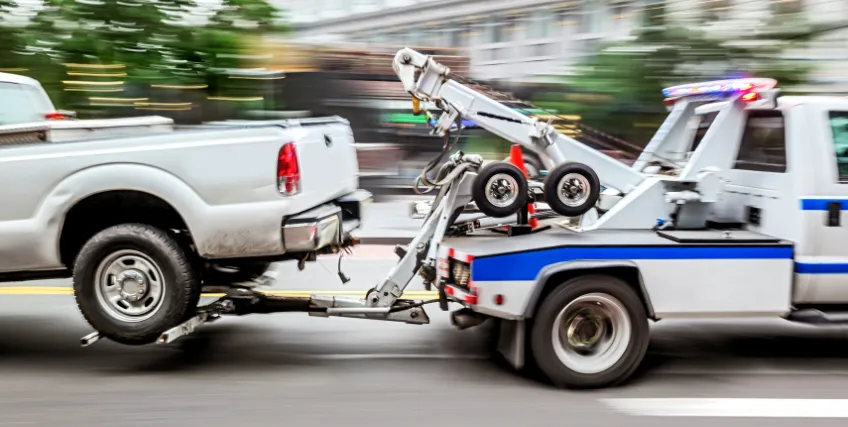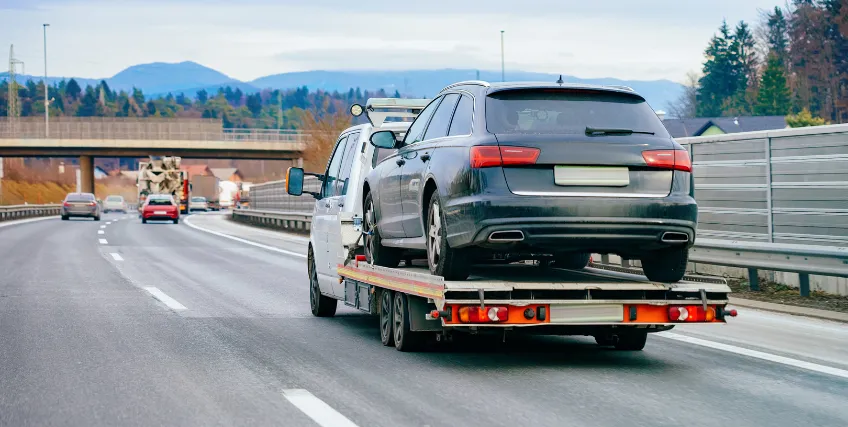Your Ultimate Guide to Tow Truck Leasing and Financing
Sep 18, 2025 | Last Updated on: Sep 22, 2025

Starting or growing a towing business can be rewarding, but coming up with the money can be challenging. One of the largest hurdles is the initial cost to buy tow trucks, which can quickly drain cash reserves if purchased outright. For many owners, leasing has become a smart alternative to paying cash. Leasing companies and business loans for towing companies allow you to get the trucks right away without the large upfront expense. You may also qualify for tax benefits, and tow truck leasing provides flexibility to upgrade to newer models.
In this article, you'll learn about tow truck leasing, compare leasing versus business loans for towing companies, and explore how to decide which option best fits your towing company’s needs.
The High Cost of Buying a Tow Truck Outright
Unlike consumer cars and trucks, buying a tow truck is much more expensive. You can save money when you finance a tow truck by buying used, but that can lead to higher maintenance costs and a lower lifespan.
Average Cost of a New Tow Truck
A brand-new tow truck can cost anywhere from $75,000 to $150,000 or more, depending on the type, size, and features. Heavy-duty models for large vehicles often sit at the higher end of this range.
New tow trucks are generally more reliable than used vehicles, and they often come equipped with the latest technologies and safety features. While you'll pay more for a new tow truck, it will have a longer lifespan, allowing you to amortize the vehicle's cost over time. Additionally, many tow truck financing companies only offer tow truck leasing on new vehicles.
Used Tow Truck Pricing
Buying used equipment is an option that can reduce the cost of buying a tow truck for your business. Prices typically range from $30,000 to $75,000, which can result in a savings of 50% or more compared to a new tow truck. A used vehicle for your tow truck company can be a good option when you have bad credit since their lower cost can offset the higher interest rates a bank may charge.
When calculating your total expenses, remember that older trucks often come with higher maintenance costs, unexpected breakdowns, and shorter lifespans. So, while you save money upfront with a used vehicle, you may pay more over the long term if you keep the vehicle for many years.
Additional Related Expenses
Beyond the purchase price or monthly tow truck leasing payment, business owners should account for other significant expenses. Insurance premiums for tow trucks can be steep, and ongoing maintenance and repair costs add up quickly. Don’t forget about licensing, registration fees, fuel, and payroll. Owners may also need to cover expenses for driver training, compliance with safety regulations, and even secure parking or garage facilities for their fleet.
Benefits of Leasing Tow Trucks
Tow truck leasing offers several advantages that make it attractive for your tow truck business, whether you're just starting or have many years of experience.
- Lower upfront costs: With tow truck leasing, you avoid paying the full purchase price at once. Instead, you make manageable monthly payments, freeing up cash for other business expenses.
- Possible tax advantages: Lease payments are often deductible as business expenses, helping reduce taxable income and saving money during tax season. However, it is advised to consult a tax professional.
- Easier upgrades: Tow truck leasing makes it simpler to switch to newer tow truck models every few years, keeping your fleet modern and reliable.
- Improved cash flow: The money you save upfront can be reinvested in marketing, hiring additional staff, or expanding service areas. This flexibility helps small businesses grow faster.
Comparing Leasing to Financing Options
There are several tow truck leasing and loan options available to small business owners. Some commercial truck financing options require down payments, while others can finance the entire purchase price. Here are some tow truck financing options to consider:
SBA Loans
Small Business Administration (SBA) loans are popular because they offer relatively low interest rates and long repayment terms for qualified applicants. However, they often require strong financials, detailed paperwork, and a lengthy approval process.
Equipment Loans
Equipment loans are tailored for purchasing assets like tow trucks. The trucks usually serve as collateral, making approval easier. But compared to tow truck leasing, the upfront costs are higher, and you’ll need to cover repairs once the trucks are aged.
Working Capital Loans
Working capital loans provide funds that can be used for almost any expense, including repairs, payroll, fuel, or marketing. While working capital loans typically aren't used for long-term assets like a tow truck, they can be a good alternative to tow truck leasing in certain situations. These loans are flexible, but they typically come with shorter repayment periods and higher interest rates than equipment loans, tow truck leasing, or SBA loans.
Leasing vs. Loans
Tow truck leasing shines when you want flexibility, lower upfront costs, and regular upgrades. Loans, on the other hand, are better if you want to own the trucks long-term and build equity in your equipment.
How to Improve Your Credit Score Before Applying
A higher credit score can help you secure better tow truck leasing terms or lower interest rates on loans. Here are a few tips for boosting your credit score before applying for tow trucking leasing or loans.
- Reduce debt: Start by paying down existing debt to improve your credit score and lower your debt-to-income ratio.
- Avoid missed payments: Make all payments on time since payment history is the largest factor in your credit score.
- Lower credit utilization ratio: Lower your utilization ratio by paying down debts or increasing your line of credit. Try to get all of your credit card balances under 30% of your credit limit.
- Fix errors on your credit reports: A 2024 study by Consumer Reports found that almost half of consumers have errors on their credit reports, and half of those errors are significant enough to impact credit scores. Go to AnnualCreditReport.com to check your credit history for free, then dispute all errors that you find.
- Limit unnecessary inquiries: Each hard inquiry can lower your credit score by up to five points. While this impact is temporary, it can affect your ability to get approved for the best tow truck leasing or loan terms.
- Don't close unused accounts: While this advice may seem counterintuitive, closing an older account can impact your average account age. Additionally, losing that credit limit causes your utilization ratio to increase, which could lower your credit score.
Finally, lenders also like to see consistent business revenue. Keeping financial records organized and up-to-date is essential to secure the best interest rates and loan terms when buying a tow truck.
Documents You’ll Need to Apply for a Lease or Loan
When applying for tow truck leasing or financing, preparation is key. You’ll likely need your business license and registration, along with recent financial statements like balance sheets and cash flow reports. Personal and business tax returns are almost always required, as well as recent bank statements.
If applying for an equipment loan, lenders may request details about the specific tow truck you’re financing. Proof of insurance is also necessary since trucks can’t be leased or financed without coverage.
Having these documents ready before applying speeds up the approval process and improves your chances of success.
Leasing vs. Buying – How to Decide
Leasing Makes Sense If
Tow truck leasing is a great fit if you want to minimize upfront costs, keep cash flow flexible, and upgrade your fleet regularly. It’s especially helpful for new businesses or companies that want to test expansion before committing to ownership at the end of the lease.
Buying Makes Sense If
Buying can be better if you plan to keep your tow trucks long-term and want to build equity in your assets. Ownership also works well for businesses with strong financial reserves or access to low-interest financing options, since they’ll benefit from having trucks as long-term investments.
The Bottom Line
Tow truck leasing can be a smart way for towing companies to expand their fleets without the massive upfront costs of buying outright. With benefits like lower startup expenses, tax advantages, and easier upgrades, leasing keeps businesses flexible and competitive. However, loans and outright purchases still have their place, especially for owners who want equity and long-term investment value.
Before making a decision on the best tow truck financing solution for your specific needs, weigh your financial situation, growth goals, and ability to manage payments. Whether you choose leasing, an SBA loan, or equipment financing for your next tow truck, the key is to invest strategically so your towing business can grow, thrive, and stay ahead of the competition.
Frequently Asked Questions (FAQs) about Tow Truck Leasing
Is leasing a tow truck ever a good idea?
Tow truck leasing is a great idea for businesses that want to minimize upfront costs and preserve cash flow. It’s especially beneficial if you plan to upgrade trucks every few years, since leasing makes switching to newer models much easier.
Can I lease a tow truck?
Many equipment financing companies and dealerships offer tow truck leasing options. Eligibility typically depends on your business credit, revenue, and ability to provide financial documentation.
How much does it cost to rent a tow truck?
Renting a tow truck for short-term use can cost anywhere depending on the type of truck and location. This is different from tow truck leasing, which is structured as a long-term monthly agreement.
What is an average tow truck lease payment?
Tow truck leasing payments vary based on the truck’s value, terms, and your credit profile. Longer lease terms or stronger credit can sometimes lower payments.
How to get a loan for a tow truck?
To get a tow truck loan, you’ll need to apply through a bank, credit union, or specialized equipment lender. Lenders usually require financial statements, tax returns, proof of insurance, and details about the truck. Having a strong credit score will also improve your chances of approval.
Frequent searches leading to this page
Term Loans are made by Itria Ventures LLC or Cross River Bank, Member FDIC. This is not a deposit product. California residents: Itria Ventures LLC is licensed by the Department of Financial Protection and Innovation. Loans are made or arranged pursuant to California Financing Law License # 60DBO-35839




